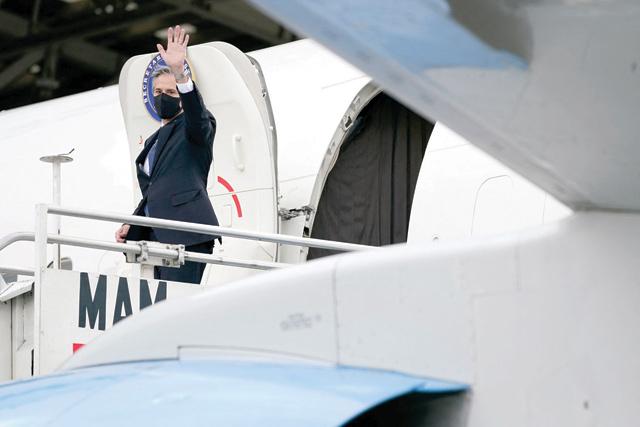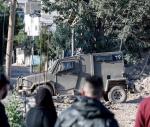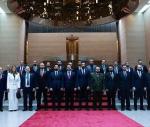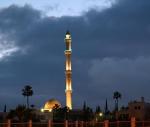You are here
Israel says historic meet with US, Arab envoys will 'deter' Iran
By AFP - Mar 28,2022 - Last updated at Mar 28,2022
SDE BOKER, Israel — US Secretary of State Antony Blinken and the top diplomats of Israel and four Arab states wrapped up landmark meeting on Monday vowing to boost regional cooperation, which Israel claimed would send a strong message to its arch foe Iran.
The talks brought together for the first time on Israeli soil the foreign ministers of the United Arab Emirates, Bahrain and Morocco, which all normalised ties with Israel in 2020 — and of Egypt, which made peace with Israel in 1979.
Israel's Foreign Minister Yair Lapid, the meeting's host, said that "this new architecture, the shared capabilities we are building, intimidates and deters our common enemies, first and foremost Iran and its proxies.
"They certainly have something to fear."
UAE Foreigh Minister Abdullah Bin Zayed Al Nahyan called the gathering "historic".
"What we are trying to achieve here is changing the narrative, creating a different future," he told reporters after the talks.
The meeting's late-Sunday opening, in the Sde Boker kibbutz deep in the Negev Desert, was marred by a shooting attack in northern Israel that killed two police officers and was claimed by the Daesh group, which has rarely managed to stage attacks inside Israel.
And early Monday, Prime Minister Naftali Bennett's office confirmed he had caught COVID, a day after he held closed-door meetings with Blinken, followed by joint press conference without masks.
Iran nuclear deal
The talks on restoring the 2015 Iran nuclear deal were high on the agenda in meetings Blinken held on Sunday with Israel's Bennett, Lapid and President Isaac Herzog.
Speaking alongside Lapid on Sunday, Blinken said the US believes restoring the agreement is "the best way to put Iran's [nuclear] programme back in the box" after the US withdrew from the deal under former president Donald Trump in 2018.
The European Union's foreign policy chief said at the weekend that an agreement with Iran to restore the so-called Joint Comprehensive Plan of Action could be reached "in a matter of days".
Blinken stressed that "when it comes to the most important element, we see eye-to-eye" with Israel. "We are both committed, both determined, that Iran will never acquire a nuclear weapon."
Lapid said the two sides "have disagreements" about the deal, whose restoration is in the final stages of negotiation in Vienna after almost a year of on-and-off talks.
But "open and honest dialogue is part of the strength of our friendship", Lapid said.
"At the same time, Israel will do anything we believe is needed to stop the Iranian nuclear programme."
'No substitute'
UAE and Bahrain formed ties with Israel under the Abraham Accords, brokered by former US president Donald Trump. Morocco then reestablished relations with Israel under a separate Trump-brokered agreement.
Israeli leaders have argued that the normalisations highlight a changed Middle East, where Arab leaders are no longer compelled to keep a distance from Israel so long as its conflict with the Palestinians remains unsolved.
The Abraham Accords infuriated the Palestinians, who argued that they marked a betrayal of a decades-old Arab League consensus to isolate Israel until it agrees to the establishment of Palestinian state, with its capital in occupied East Jerusalem.
Blinken has voiced strong support for the Abraham Accords, negotiated by the previous US administration, but cautioned at the Negev meeting that they cannot replace Israeli-Palestinian peace-building.
The gains brought about by the Abraham Accords “are not a substitute for progress between Palestinians and Israelis”, Blinken told reporters.
In Israel Sunday, Blinken also discussed strategies to ensure calm this year during the Muslim holy month of Ramadan, Christian Easter celebrations and the Jewish Passover holiday, which overlap.
Tensions in Israeli-occupied East Jerusalem, which Palestinians claim as their future capital, partly fuelled an 11-day conflict in May last year with the Islamist group Hamas which controls the Gaza Strip.
Blinken stressed the need to “prevent actions on all sides that could raise tensions, including [Jewish] settlement expansion” in occupied Palestinian territories, a rare in-person condemnation of Israeli efforts to expand the Jewish settler population.
Related Articles
OCCUPIED JERUSALEM — Diplomats from the United States, Israel and four Arab countries will convene in Bahrain on Monday, Israeli officials s
DUBAI — Israel participated in one of its “largest” meetings with Arab countries in decades during a forum held in the United Arab Emirates,
WASHINGTON — US Secretary of State Antony Blinken will meet next week with top diplomats from Israel and the United Arab Emirates, the State


















